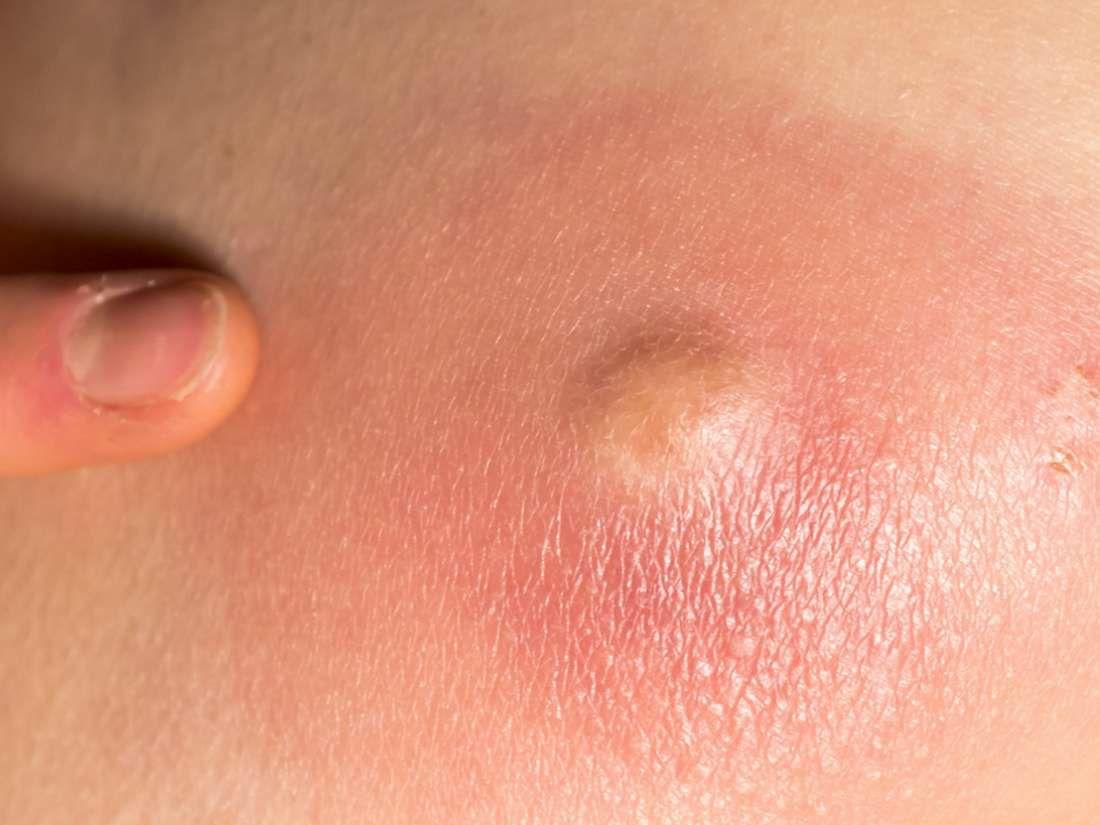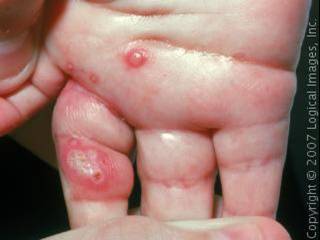Four people developed skin irritations following two separate trips to two beaches at Sentosa, prompting the National Environment Agency (NEA) to issue an advisory.
Hospitalised after wounds infected by bacteria
A family of three, a 37-year-old woman, her husband and daughter visited to Tanjong Beach on Sentosa on July 23.
According to The Straits Times, they underwent incision and drainage surgery at the National University Hospital to remove pus from infected wounds.
The family was hospitalised from July 23 to July 26.
By coincidence, their neighbour's five-year-old son had developed an itchy boil below his knee after going to Palawan Beach's HydroDash obstacle course.
All four were infected by the Staphylococcus auereus, or the Staph bacteria.
Here's how a Staph bacteria infection looks:
 Photo via Medical News Today
Photo via Medical News Today
 Photo via Wikipedia
Photo via Wikipedia
NEA responds
In response to Mothership.sg's queries, the National Environmental Agency (NEA) said that beach users are "advised to regularly wash their hands, avoid swimming or wading in bodies of water with open wounds, and shower after exposure to marine water".
According to the World Health Organisation (WHO), the Staph bacteria is "relatively widespread" in the environment, and can be found in the skin and nostrils of two to three out of every 10 people.
The WHO mentions that the Staph bacteria may be found in beach sand at popular beaches and is attributed to human activity. The bacteria can be passed by an infected person to another, and it can be left on surfaces. It is also a common cause of food poisoning.
It is possible to find the bacteria in water environments such as swimming pools, spa pools and other recreational waters. It may cause minor irritation in an infected person.
There are currently no guidelines set for the level of Staph bacteria in waters of recreational beaches that may pose any public health risk. Waters around Singapore are not checked for the Staph bacteria.
Water monitored for other harmful bacteria strain
However, the water quality at seven beaches, including in Sentosa, is monitored weekly for Enterococcus, which is a harmful bacteria which can survive even in adverse environmental conditions.
The Enterococcus bacteria can be found in animal and human faeces, and may also be found in food and water.
NEA said that Enterococcus counts for the month of July were within WHO guidelines for primary contact activities, such as swimming.
You can read NEA's full statement here:
The National Environment Agency (NEA) monitors the water quality at seven recreational beaches, including the beaches in Sentosa, weekly for Enterococcus counts based on World Health Organisation’s (WHO) water quality guidelines for recreational use. The Enterococcus counts for the month of July 2020 have been within the WHO guidelines for primary contact activities, such as swimming.
While the WHO mentions that Staphylococcus aureus may be found in beach sand at popular beaches and is attributed to human activity (bather shedding), there are no guidelines set for the level of S. aureus in waters of recreational beaches that may pose any public health risk. It is therefore not possible to ascertain whether the S. aureus levels in the recreational waters pose any public health risk.
In view of this, the recreational waters in Singapore are not tested for S. aureus. Countries that monitor recreational beach water quality, such as Australia, Hong Kong, France, New Zealand, US, and UK, also do not provide results on S. aureus levels. Enterococcus is the most common indicator adopted for recreational beach water quality.
All beach users are advised to practise good personal hygiene such as regular washing of hands, avoiding swimming or wading in bodies of water with open wounds, and showering after exposure to marine water.
We deliver more stories to you on LinkedIn
Totally unrelated but follow and listen to our podcast here
Top image via Sentosa's Facebook page
If you like what you read, follow us on Facebook, Instagram, Twitter and Telegram to get the latest updates.
